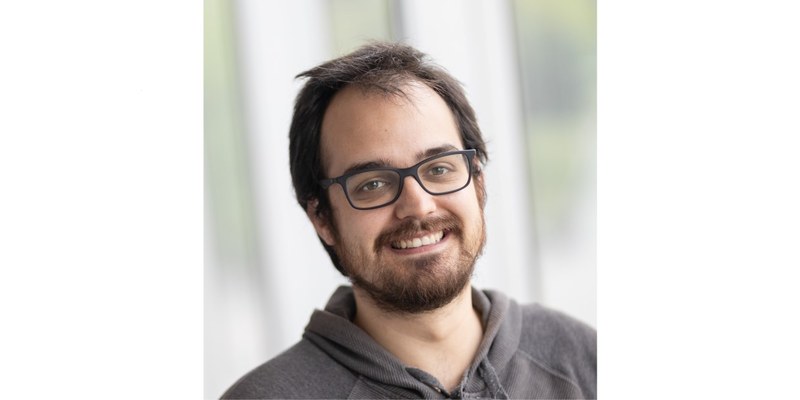MASTEAM-MATT talk - Dr. Joan A. Ruíz-de-Azúa (i2Cat Foundation) - i2CAT Space Communications Research Group: Contributions to the New Space and future research
- https://eetac.upc.edu/ca/esdeveniments/masteam-matt-talk-dr-joan-a-ruiz-de-azua-i2cat-foundation-i2cat-space-communications-research-group-contributions-to-the-new-space-and-future-research
- MASTEAM-MATT talk - Dr. Joan A. Ruíz-de-Azúa (i2Cat Foundation) - i2CAT Space Communications Research Group: Contributions to the New Space and future research
- 2021-10-06T18:00:00+02:00
- 2021-10-06T19:00:00+02:00
06/10/2021 de 18:00 a 19:00 (Europe/Madrid / UTC200)
The EETAC Master's degrees in Applied Telecom. and Engineering Management (MASTEAM) and Advanced Telecommunications Technologies (MATT) organize a weekly series of activities (talks, technical visits, discussion pannels) that complement the academic activities with real-world experiences from companies, research centres and institutions in the main topics of the master: Internet of Things, Smart Cities, 5G mobile communications, Software-Defined Networking (SDN) and Radio (SDR), cloud computing, augmented reality and audiovisual services, among others.
Speaker: Joan A. Ruiz-de-Azua, PhD.
Title: "i2CAT Space Communications Research Group: Contributions to the New Space and future research"
Abstract: The space has changed during the last decades evolving from big and unique satellites to miniaturized and cheaper architectures. These novel solutions opens the access to launch novel concepts and ideas as satellite missions, encouraging more unconventional developments. This trend has been called New Space because it differs from the traditional or "Old" space in this dynamism in the satellite missions, which promotes the participation of private entities (instead of just public agencies). Among the different space research domains that has been revolutionized with this movement, the integration of mobile communications technologies with satellite platforms has grown in interest during the last years. Specifically, satellite systems can provide global coverage and serve large amount of users, which contributes in the 5G goals of seamless connectivity. It is in this domain in which i2CAT has founded its research composing the Space Communications Research Group. This group aims at contributing to developing novel communications technologies for future Earth Observation and Telecommunications satellite missions. This presentation will expose the different research lines that the group is investigating and the current projects that are being developed.
Bio: Joan A. Ruiz-de-Azua was born in Barcelona, Spain. He received the degree in aerospace engineering from Supaero, Toulouse (France), in 2015, the degree in telecommunications engineering from the Universitat Politècnica de Catalunya (UPC), Barcelona (Spain), in 2015, and the M.S. degree in network protocols from Supaero, in 2015. He conducted his M.S. thesis about Avionic Full Duplex Switched Ethernet for critical networks in École Polytéchnique de Montréal, Montréal (Canada). For this dissertation, he was awarded with the best M.S. thesis on Critical Communications from the Official Spanish Telecommunications Chartered Institute, in 2016. Additionally, he received the Ph.D. degree of telecommunications engineering with the UPC, Barcelona (Spain), in 2020. This dissertation contributes to the Internet of Satellites paradigm in which satellites from different stakeholders establish temporal and opportunistic Inter-Satellite Networks because remote satellites want to collaborate between them. For all this contribution, he was awarded with the Cum Laude mention for the excellence of his Ph.D. dissertation. He has participated in different aerospace projects, such as the development of Ariane 5 and Ariane 6 ground segment. Furthermore, he has participated in multiple CubeSat missions in the last three years, one of them was selected as the winner of the Copernicus Masters competition, and the Sentinel Small Satellite (S^3) challenge. Furthermore, he has been the co-advice of more than 10 TFG and 8 TFM at the UPC, related to satellite communications, attitude, thermal, structure, software and operations activities. Currently, he is the director of the Space Communication Research Group, which aims at contributing to developing novel communications technologies for future Earth Observation and Telecommunications satellite missions. His research interests are linked to satellite networks, non-terrestrial network architectures, disruptive tolerant routing protocols, application of artificial intelligence in satellite communications, integration of SDN/NFV in satellite constellations, and the integration of IoT devices with satellite platforms.
When: Wednesday 6th October 2021, 18:00h
Where: Classroom C4-021B and meet.google.com/thz-ydjf-zcg - Please join the meeting on time. How to arrive.

Comparteix: